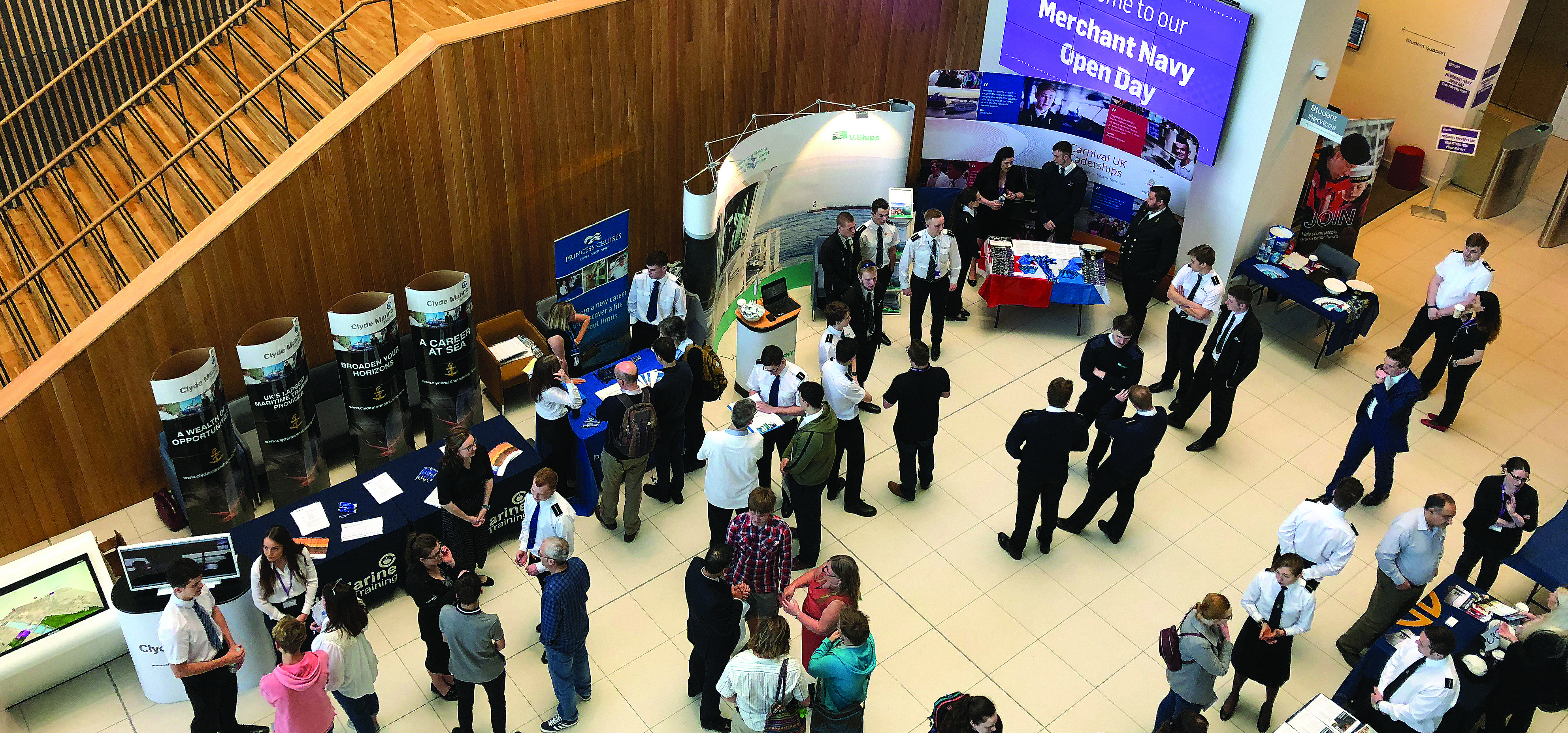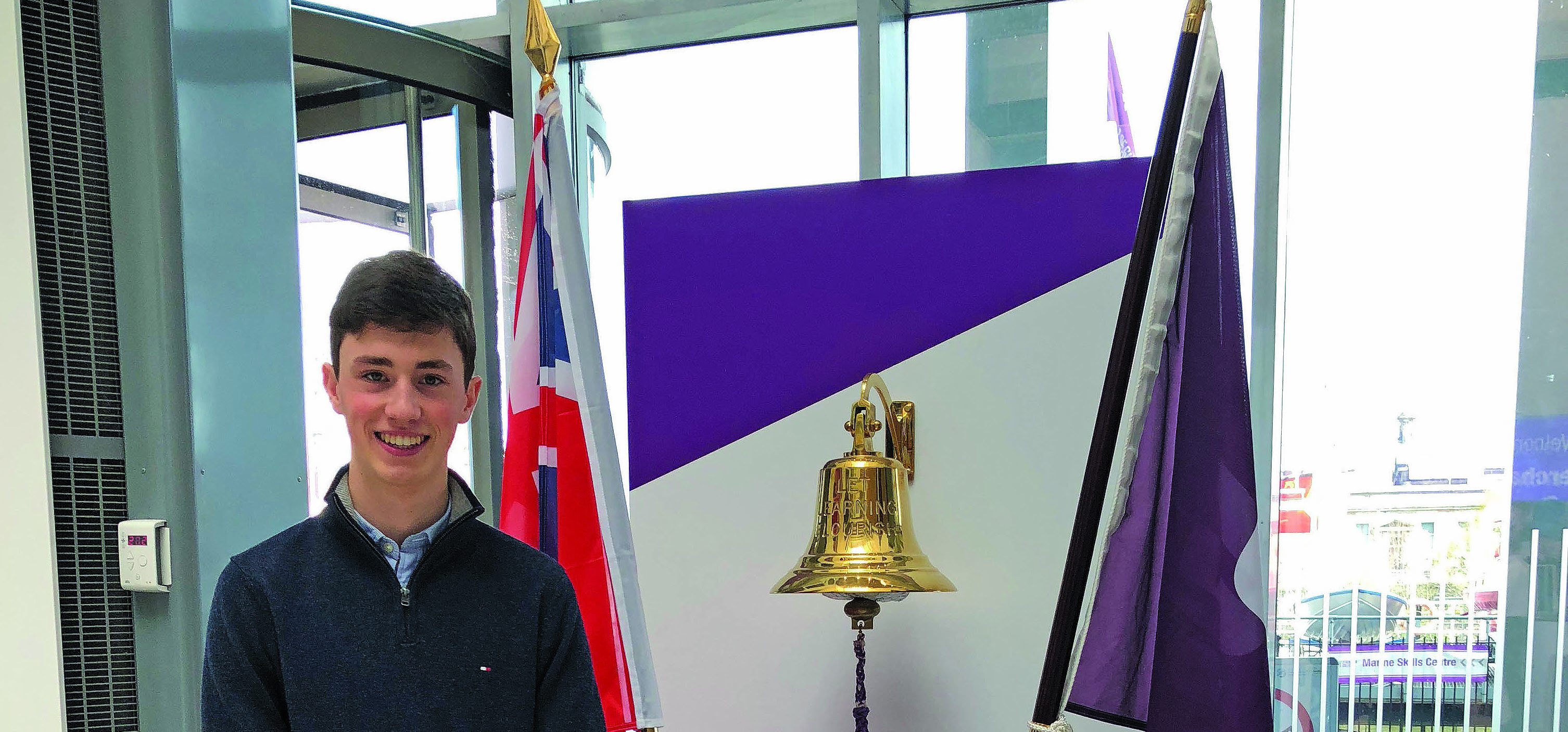- Topics
- Campaigning
- Careers
- Colleges
- Community
- Education and training
- Environment
- Equality
- Federation
- General secretary message
- Government
- Health and safety
- History
- Industrial
- International
- Law
- Members at work
- Nautilus news
- Nautilus partnerships
- Netherlands
- Open days
- Opinion
- Organising
- Podcasts from Nautilus
- Sponsored content
- Switzerland
- Technology
- Ukraine
- United Kingdom
- Welfare

How will shipowners deliver on their pledge to train more than 400 extra cadets each year in return for the increased training funds on offer from the UK government? STEVEN KENNEDY reports on a 'SMarT Plus summit' in April 2018 to consider the questions…
UK Chamber of Shipping chief executive Guy Platten gave a startlingly honest statement as he opened a seminar on British seafarer training.
'The government has called our bluff,' he said. 'We have asked for more money to aid training, and they have given it to us and said, "go on then".'
The 'bluff' is the enhanced Support for Maritime Training scheme – SMarT Plus – which was formally launched in February by shipping minister Nusrat Ghani.
SMarT Plus will see the government double the financial support for maritime training – from £15m to £30m – which could result in more than 400 extra cadets being taken on each year. It also aims to encourage companies to increase their commitments to retain cadets and help them achieve the sea time needed for their next certificates.
Nautilus International worked closely with the Chamber to campaign for SMarT Plus, and the seminar was organised so owners, managers, training providers and union representatives could discuss ways to ensure that the scheme delivers what it is designed to achieve.
The original SMarT scheme – which started in April 1998 – was established 'to ensure a continuing supply of UK seafarers , particularly officers, to meet the nation's economic and strategic requirements'.
The scheme managed to end decades of decline in cadet numbers, with the average annual intake rising to between 750 and 900. However, the number of newstart officer trainees has continued to fall well short of government and industry's long-standing objective of 1,200 cadets recruited annually.
That's where SMarT Plus comes into play. The SMarT Plus funding proposals developed by Nautilus and the Chamber would cover the full costs of college training, including the training allowance. Shipping companies would continue to fund the sea time phases, including travel to and from ships and related auxiliary costs.
The provision will mean a higher level of SMarT funding for companies that provide a minimum of 12 months' employment for each cadet post-certification. In this way, it is hoped, the number of cadetships and qualified UK officers will be increased.
However, said Chamber of Shipping policy director Tim Springett, there is still a lot of work to do. 'We must work out how the SMarT Plus payments system operates,' he told the meeting. 'Simply front-loading it onto existing SMarT payments is not an option, because you don't have the incentive to employ the newly qualified officers.
'We have to be slightly imaginative in our thinking as to how we ensure companies not only have sufficient incentives to increase the numbers they recruit in the first place, but then employ them all in greater numbers once they have qualified,' he added. The original aim of the SMarT programme was to provide 50% of the costs of training a cadet to their first Certificate of Competency (CoC) – in line with EU state aid guidelines. The problem is that with increases in training costs and course fees, the value of SMarT has been eroded over the years, and it now covers just 25% to 30% of those costs.
SMarT Plus aims to raise that figure back up to the 50% region. Yet questions remain on many issues. Questions such as whether SMarT Plus should be run alongside the current SMarT system, what conditions companies need to meet to satisfy their qualification for SMarT Plus funding, and in what timeframe after a cadet qualifies would a company be required to offer them employment in a junior officer role.
Some delegates at the meeting suggested the selection of cadets for SMarT Plus should be 'done by numbers not by names'. This means that a company would commit to a set number of cadets from the total number it is taking on rather than cherry-picking candidates.
It was also argued that SMarT Plus funding should be 'drip-fed' over the years, and that companies should issue a 'letter of intent', three months after a cadet earns their CoC, setting out a timeframe in which they would be deployed as a junior officer. This was an issue picked up by Nautilus professional and technical officer David Appleton. 'The whole principle of SMarT Plus is that a company must offer a commitment for employment,' he pointed out. 'To get the funding, we'd want to see the company committing to employing young officers once they have their CoCs.'
With the session seemingly yielding few answers and raising further logistical questions about SMarT Plus, the delegates turned their attention to another thorny question: how the industry should encourage more young people to consider the maritime sector as a career option.
'We need to raise the annual intake,' stressed Merchant Navy Training Board director Kathryn Neilson. 'We're already about 100 cadets down from last year: 771 was last year's fi gure and 663 is this year's figure, so it will be a challenge.
'I think one of the biggest challenges we face in the industry is getting the word spread,' she continued. 'It's for young people that we need to change that message. What are we doing to address the issue? One initiative that's just been approved by the Maritime & Coastguard Agency is to allow cadets to train on Royal Navy vessels. We need to also make training exciting and appealing. How are we using technology? Can we use simulator training as part of sea time that really shows our cadets what it's like to be at sea?
'We want cadets employed at the end of their training, and SMarT Plus is critical to achieve this,' she concluded.
There were some suggestions that companies are struggling to get cadets, as there is a perception of: 'What's the point going to sea if jobs in the future are all going to be automated?'.
The meeting also considered whether UK cadet numbers could be boosted through encouraging more serving seafarers to volunteer as Careers at Sea Ambassadors. It was reported that only 47% of requests from schools and youth groups for Ambassador visits are met at present.
Yet, however desirable it may be to send more volunteers to careers events, this is not going to make a significant difference to UK recruitment and retention rates unless the industry can offer a better career package.
Companies are simply not offering enough junior officer positions to their trainees once they have qualified, and Mr Appleton stressed that the onus is now on the shipowners to step up and play their part to ensure SMarT Plus is a success.
'The stipulation that companies must commit to employing newly qualified officers in order to be eligible for the additional funding should alleviate the problems experienced by those who have struggled to find their first job,' he said.
'The biggest challenge now is to find a workable way to implement the scheme whilst ensuring that the very explicit promises made are achieved. It is up to the owners to ensure that this happens.'
Further seminars to discuss SMarT Plus are being planned by the UK Chamber of Shipping.
- For more information visit: www.ukchamberofshipping.com
We want cadets employed at the end of their training, and SMarT Plus is critical to achieve this. Merchant Navy Training Board director Kathryn Neilson

Hull revival starts to see success
The shipping industry is crying out for keen, intelligent and committed young people – but where can they be found?
Hull Trinity House Academy is seeking to plug the gaps – with special new training facilities and a programme of nautical studies courses which were launched by the Princess Royal last year.
Aimed at students aged between 16 and 18, the nautical college has revived a tradition of maritime training by Hull Trinity House School which dates back to 1787. The academy is already claiming success, with students gaining interviews with employers including Carnival UK, the RFA, James Fisher and Clyde Marine and also going on to begin officer cadet training courses at colleges around the UK.
Established by Academy vice-principal Nathan Goodman and head of maritime studies David Forth, with the support of industry partners and Delta Academies Trust, the nautical college has a chart room, IT suite, a training simulator, and an engine room, and offers courses varying from pre-cadetships, apprenticeships, and Level 2 and Level 3 in Nautical Science.



Good show in Glasgow
There's certainly no shortage of aspiring seafarers in Scotland, judging from a record turnout for City of Glasgow College's annual Merchant Navy Open Day.
More than 120 potential trainees attended the event this year, along with representatives from nine shipping companies and a number of maritime-related organisations, including Careers at Sea, Women into Maritime and the Sea Cadets.
Staff from the Faculty of Nautical Studies were on hand to offer advice, and current officer trainees shared their experience of training and life as a cadet, at college and at sea.
Clyde Marine Training, Anglo Eastern, Carnival, Chiltern Maritime, Princess Cruises, the Royal Fleet Auxiliary, SSTG, and V.Ships were among the companies who exhibited this year. Two new companies, Shell and AW Crewing, were also present and actively recruited cadets for the upcoming academic year.
Clyde Marine Training general manager Katy Womersley commented: 'These events are an integral part of attracting new talent to the maritime industry, and today has been a huge success, with interest from lots of potential future officers.'
Prospective student Alexander Morrison, 18, said: 'I've always wanted a career in the Merchant Navy, and City of Glasgow College stands out among colleges in the UK to help me get there. I really like the modern and state-of-the-art-facilities on offer here, plus the accommodation is excellent. Coming to the Merchant Navy Open Day gave me the opportunity to catch up with the companies that I have interviews scheduled with and to have a look around. The staff have all been really nice and helpful – I would recommend that anyone considering a career at sea definitely come to this event and see for themselves.'
Tags
